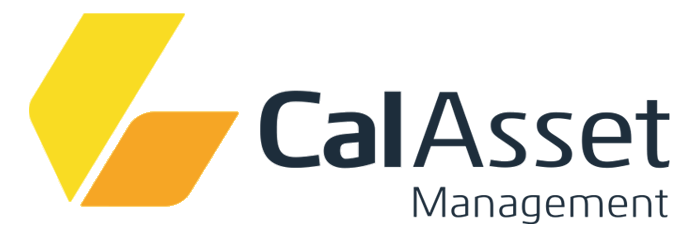In this week’s edition:
· US Equities Close at New Highs as Investors Digest Upbeat Corporate Earnings, the Fed’s First Rate Cut of 2025, and Signs of Progress in US-China Relations
· Gold Rises by 1.16%, Gaining from its Safe-Haven Appeal Following the Fed’s Policy Cut
· Ghana’s Treasury Auction Records 13.71% Oversubscription, with Yields Trending Down Across the Curve
· Ghana Stock Exchange Posts Historic Rally, Recording Highest Weekly Gain in Over 2 Years; GSE-CI Hits 59.13% YTD, While GSE-FSI Climbs to 53.47% YTD
Kindly click to view the full report: Global Markets Update - September 23, 2025
AROUND THE GLOBE
· Fed Cuts Rates by 25bps, Signals More Easing
o The Federal Reserve lowered the federal funds rate by 25bps to 4.00%–4.25% in September 2025, its first cut since December. Governor Stephen Miran dissented, favoring a larger reduction. Updated projections showed another 50bps of cuts in 2025 and a quarter point in 2026. Growth forecasts were revised higher, while inflation projections for 2026 rose. The Fed maintained a 4.5% unemployment outlook for 2025, edging lower in 2026.
· BoE Holds Rate at 4%, Slows Gilt Sales
o The Bank of England (BoE) kept its key rate at 4% in September 2025, with a 7–2 vote as two members favoured a 25 bps cut. The MPC also voted to slow quantitative tightening, reducing gilt holdings by £70 billion to £488 billion over the next year. Policymakers cited easing wage growth and disinflation progress but flagged lingering inflation risks. With GDP growth subdued, the BoE emphasized a cautious, data-dependent stance..
· BoJ Holds Rate at 0.5%, Starts ETF and REIT Sales
o The Bank of Japan kept its benchmark rate at 0.5% in September 2025, the highest since 2008, in a 7-2 vote. Alongside the hold, it announced annual sales of ETFs (JPY 330 billion) and REITs (JPY 5 billion), signaling further policy normalization. The board said Japan’s economy is recovering moderately, with consumption supported by income gains. However, exports and output remain weak, while inflation stays between 2.5% and 3%, led by food prices.
· Eurozone Manufacturing PMI Falls Back Into Contraction
o The Eurozone Manufacturing PMI slipped to 49.5 in September 2025 from August’s 50.7, missing forecasts of 50.7 and signaling renewed contraction. New orders posted their steepest decline since February, while output growth slowed to near stagnation. Employment continued to fall, extending a trend since June 2023. Input costs dropped for the first time in three months, alongside lower output charges. Business confidence also weakened, hitting its lowest point this year.
· China’s FDI Falls 12.7% Despite Strong High-Tech Inflows
o China’s FDI fell 12.7% year-on-year to CNY 506.6 billion in the first eight months of 2025 amid global economic uncertainty. Manufacturing drew CNY 129 billion, while services accounted for CNY 336 billion. High-tech sectors attracted CNY 148.3 billion, with e-commerce up 169.2% and aerospace up 37.5%. Investment from Japan (+58.9%), Switzerland (+37.2%), and the UK (+24.5%) surged, highlighting continued foreign interest in China’s advanced industries despite the overall decline.
GHANA
· Ghana Cuts Policy Rate by Record 350 bps to 21.5%
o The Bank of Ghana slashed its benchmark rate by 350 basis points to 21.5% on September 17, the steepest cut on record, citing sustained disinflation, robust growth, and stronger external buffers. Inflation eased to 11.5% in August, the lowest in four years, while Q2 GDP expanded 6.3% and non-oil GDP rose 7.8%, led by agriculture and services. External balances improved, with a $6.2 billion trade surplus and reserves of $10.7 billion (4.5 months import cover). The cedi has gained 21% YTD, ranking among the world’s best performers. Policymakers highlighted anchored inflation expectations and improving confidence despite risks from utility tariff hikes.
AFRICA
· South Africa Holds Repo Rate at 7% Amid Inflation and Growth Trade-offs
o The South African Reserve Bank (SARB) kept its key repo rate steady at 7% on September 18, 2025, in line with expectations, as it balances global uncertainty with a pending shift to a 3% inflation target. The vote was split, with four members opting for no change and two preferring a 25 bps cut. Since September 2024, rates have fallen 125 bps. Policymakers noted inflation is rising as projected, averaging 3.4% in 2025, while growth was revised up to 1.2% from 0.9% after stronger Q2 GDP.
· Nigeria Economy Accelerates to 4.23% in Q2 2025
o Nigeria’s economy grew 4.23% year-on-year in Q2 2025, up from 3.13% in Q1, marking its fastest pace since Q2 2021. The rebound follows a rebasing of national accounts to 2019 and was fueled by a 20.5% surge in the oil sector alongside a 3.6% expansion in non-oil activities. Industry led growth at 7.45%, supported by services at 3.94% and agriculture at 2.82%. The data signal renewed momentum for Africa’s largest economy, with gains in both resource and non-resource sectors.
Sources: Bloomberg, Reuters, Trading Economics
